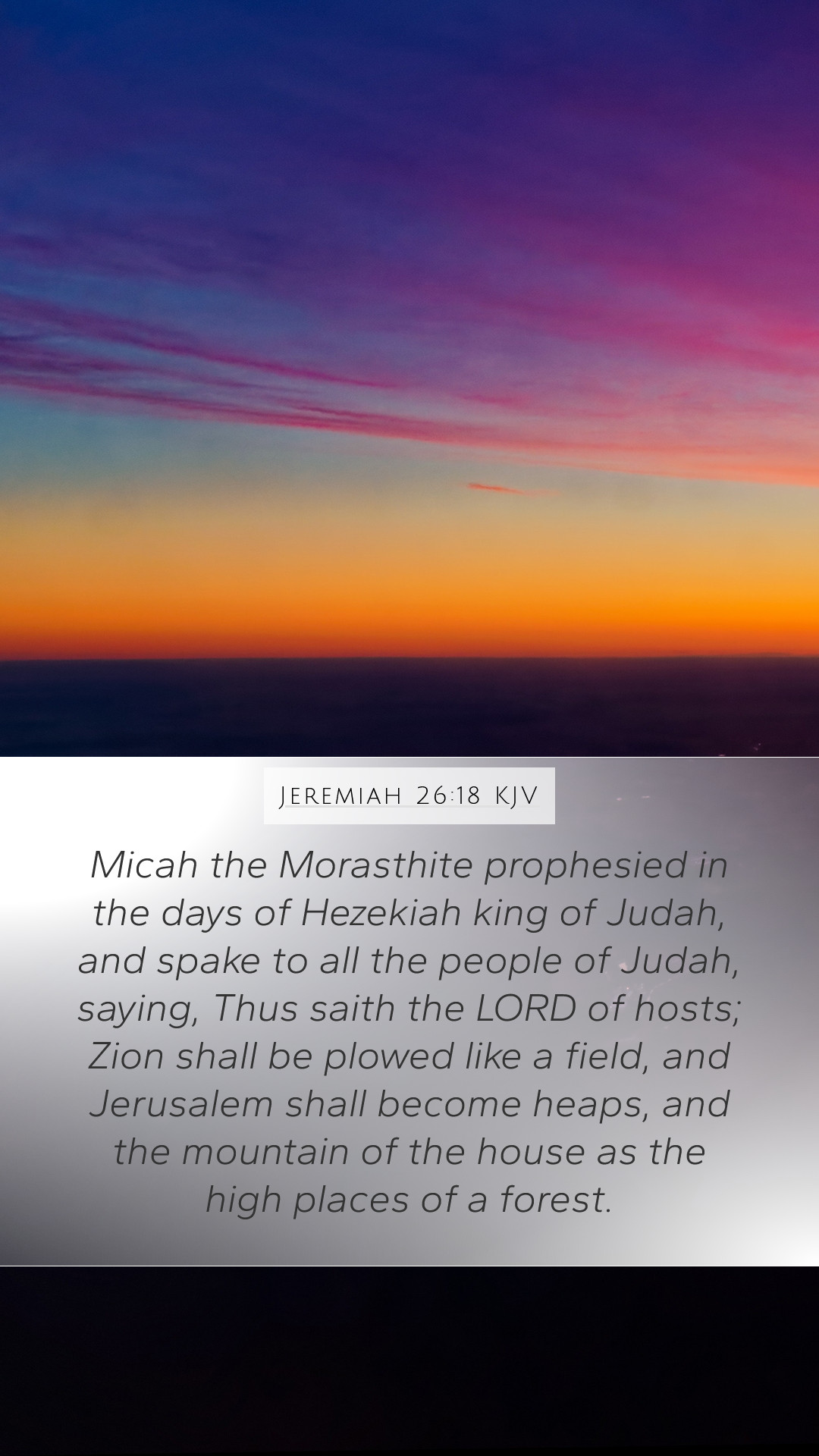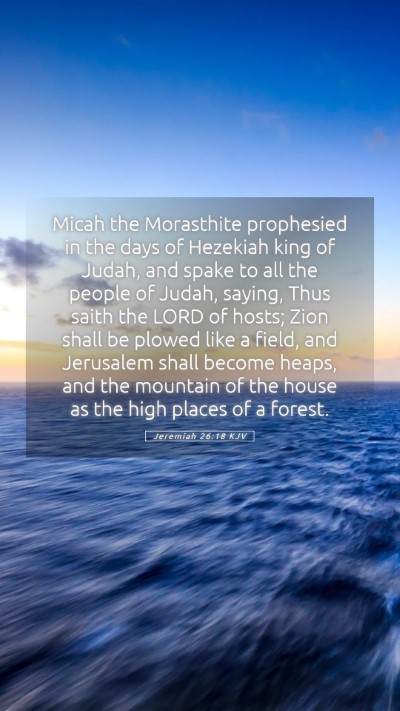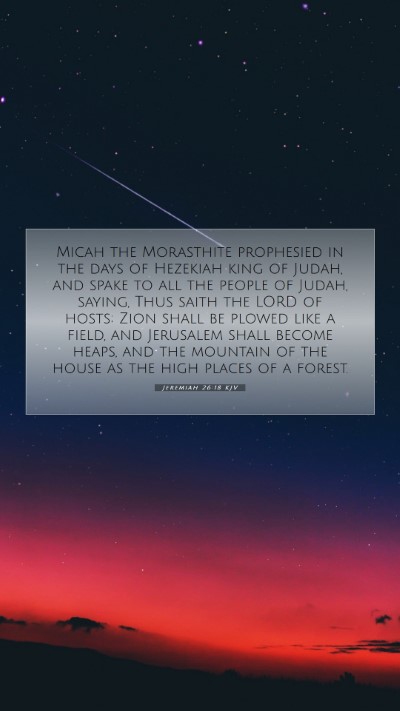Understanding Jeremiah 26:18
Jeremiah 26:18 reads: "Micah of Moresheth prophesied in the days of Hezekiah king of Judah, and spoke to all the people of Judah, saying, 'Thus says the Lord of hosts: Zion shall be plowed like a field, Jerusalem shall become heaps of ruins, and the mountain of the house like the bare hills of the forest.'"
Bible Verse Meanings
This verse serves as a poignant reminder of the seriousness of prophesy and God’s warnings through His chosen messengers. Through Micah's prophetic words, it highlights the themes of divine judgment and the consequences of the nation's disobedience.
Context and Significance
In order to grasp the full meaning of this passage, one must consider its historical context. Here are some key insights:
- Historical Background: Micah prophesied during the reign of King Hezekiah (around 740-686 BC), a time noted for significant political and spiritual turmoil in Judah.
- Divine Judgment: The imagery of Zion being plowed and Jerusalem reduced to ruins starkly symbolizes the imminent judgment upon the people due to their sins.
- Prophetic Tradition: This verse serves as a reminder that prophets often faced rejection, yet their messages were crucial for the spiritual welfare of the nation.
Bible Verse Interpretations
According to commentators:
- Matthew Henry: He interprets this verse as a solemn warning from the Lord to His people. He emphasizes that just as Micah's prophecy was unheeded in his time, so too, the people in Jeremiah's day were at risk of ignoring God’s voice.
- Albert Barnes: Barnes notes the prophetic fulfillment of Micah's words, implying that the impending destruction of Jerusalem was inevitable due to the continued sinfulness of its inhabitants.
- Adam Clarke: Clarke highlights the metaphorical use of land being plowed under, which serves to illustrate the complete devastation expected as a result of God’s judgment, reinforcing the gravity of his message.
Meaning of Bible Verses
The essence of Jeremiah 26:18 can be broken down into several key points:
- Warning from God: The message is a divine warning against complacency in spiritual practices.
- Importance of Prophecy: Prophets like Micah played a crucial role in conveying God's messages, despite societal opposition.
- Consequence of Sin: The passage directly relates sin with consequences, emphasizing that God will not allow disobedience to go unchallenged.
Bible Study Insights
For those engaging in Bible study groups or online Bible study, this verse encourages deep introspection. It can serve as a basis for discussion around:
- How does the history of Israel reflect God’s persistent call to repentance?
- What lessons can be learned from ignoring prophetic warnings in the Bible?
- In what ways can Micah’s and Jeremiah’s messages apply to contemporary society?
Scripture Analysis and Biblical Exegesis
An in-depth Bible verse analysis of Jeremiah 26:18 reveals:
- The Role of the Prophets: A focus on the unique functions of prophets throughout biblical history.
- Historical Context: Understanding the socio-political climate of Judah during Hezekiah's reign enhances the interpretation of Micah's prophecies.
- God’s Sovereignty: Acknowledging God as the ultimate authority over nations and their destinies.
Application of Bible Verses to Daily Life
Understanding Jeremiah 26:18 encourages believers to consider:
- Heed God's Warnings: The importance of listening to spiritual leaders and acknowledging divine messages in our lives.
- Self-Examination: Reflecting on personal behaviors and choices in light of scriptural teachings.
- Community Impact: Recognizing how communal sin affects the wider society and nurturing accountability among one another.
Bible Cross References
Jeremiah 26:18 relates closely to other scripture passages:
- Micah 3:12: A parallel forewarning regarding the destruction of Jerusalem.
- Jeremiah 7:34: Warnings of desolation stemming from unrepentance.
- Isaiah 6:11: Similar themes of judgment pronounced through the prophet Isaiah.
Conclusion
In conclusion, Jeremiah 26:18 stands as a significant passage that combines history, prophecy, and divine message. The reflections from comments by Matthew Henry, Albert Barnes, and Adam Clarke serve to enrich our understanding and provide profound insights into God's dealings with His people. Engaging with such scriptures helps deepen our Bible verse understanding and inspires proactive faith in our walk with God.


